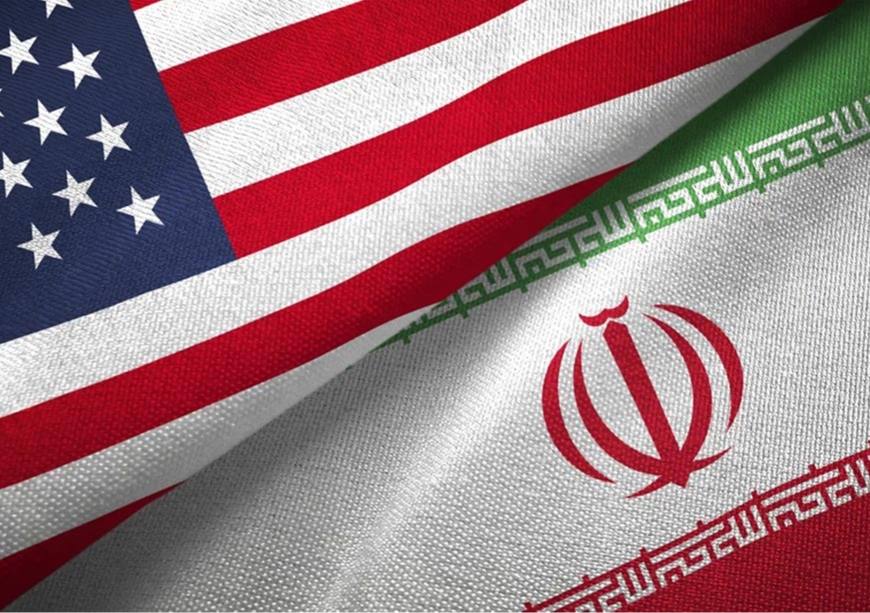-
CENTRES
Progammes & Centres
Location
Iran’s leadership crisis may have come at an important time for the US, amid an ongoing political slugfest at home in an election cycle and a litmus test for US relations with Israel.

In the wake of the helicopter crash that tragically claimed the lives of President Ebrahim Raisi and Foreign Minister Hossein Amir-Abdollahian, Iran finds itself at a critical juncture, grappling with both internal and external challenges. Foremost among them is its relationship with the US. Iran is in the middle of a tense regional competition with Israel over the latter’s war in Gaza with Hamas. Washington is invariably drawn into what constitutes a historically contested triad shaping stability and instability in broader West Asia. Iran’s leadership crisis may have come at an important time for the US, amid an ongoing political slugfest at home in an election cycle and a litmus test for US relations with Israel. Two factors, however, are likely to dampen any US expectations from Iran. Iran’s topmost leadership remains intact under the aegis of the supreme leader, Ayatollah Ali Khamenei, and the next president will be expected to meet the benchmarks set by previous leaders.
Iran is in the middle of a tense regional competition with Israel over the latter’s war in Gaza with Hamas.
For the US, the Iran challenge is likely to remain complex, both due to the leadership transition inside Iran and the growing regional power and influence projected by Tehran. If the Biden administration, despite its initial will, couldn’t bind Iran within the constraints of the Joint Comprehensive Plan of Action (JCPOA), a possible Trump presidency would be even less likely to succeed. Regional anti-American sentiments in West Asia, especially among Iran and its proxy groups, seem further entrenched. However, the Biden administration has an opportunity to mitigate regional hostilities by fostering a Saudi-US détente, which remains on the table but is heavily dependent on how much influence Washington can wield with Israel’s highly conservative cabinet in restraining its behaviour in Gaza.
Iran’s regional outlook and relations with the US may not be poised for significant shifts, given the predictability associated with the regime, yet the challenge of nurturing inter-generational leaders looms large for Iran. Leadership succession in Iran’s internal politics has always been meticulously planned and nurtured over the years, undergoing a rigorous process to ensure continuity. Internally, Iran faces a crucial test of its leadership amid a situation it has not encountered in decades. However, there is solace in the fact that Supreme Leader Ayatollah Khamenei remains alive, poised to select the most suitable candidate.
Internally, the vacuum left by the untimely demise of two top leaders presents a crisis as well as an opportunity. However, the socio-cultural divergence with the West, exemplified by the Iranian leadership’s lingering reluctance to embrace any change, may continue to strain the relationship. The crisis in leadership compounds this internal struggle, as no state wishes to appear leaderless during times of uncertainty.
The new leadership in Iran will be tested in how it continues to project its regional influence and maintain the momentum of clandestine efforts it has propagated across its axis.
Externally, the challenges for Iran are manifold, particularly in filling the leadership void that has been growing since the death of General Qasem Soleimani in 2020 after a US-targeted strike. The new leadership in Iran will be tested in how it continues to project its regional influence and maintain the momentum of clandestine efforts it has propagated across its axis. Internationally, the Iranian leadership’s challenge will primarily be in its tussle with the West on the one hand and maintaining poise in its relationships with varied actors such as China, Russia, and India, all while avoiding Western sanctions. Iran, which has been persistently characteristic in its distinct political stance even in the face of sanctions and regional tensions, has found an alternative axis of support, most notably through partnerships with China and Russia.
Besides, Iran has fostered a network of regional support through proxy groups such as Hezbollah, Kataib Hezbollah, the Houthis, Hamas, and others. This solidarity axis is now bolstered by a shared commitment to the Palestinian cause. However, the post-October 7, 2023, landscape has seen a nuanced shift in perceptions, including those of regional Arab leaders. As such, the current period is particularly tumultuous in West Asiawith the unabating Israel-Hamas conflict. The loss of key figures in Iran’s leadership couldn’t have come at a worse time, especially as Iran finds itself at a crossroads, balancing unfinished conflicts and shifting regional loyalties.
According to the International Atomic Energy Agency, Iran is now enriching uranium to as much as 60% purity and possesses enough of this material that, if further enriched, could be sufficient for two nuclear weapons. Now that the ‘breakout’ time is close to zero, there are strong incentives for keeping Tehran engaged through the IAEA, if not bilaterally.
Internationally, the Iranian leadership’s challenge will primarily be in its tussle with the West on the one hand and maintaining poise in its relationships with varied actors such as China, Russia, and India, all while avoiding Western sanctions.
Despite the seeming belligerence of Iran’s leadership, avoiding war and efforts towards regional peace and stability lie at the core of Tehran’s long-term regional vision. Just a week before the fatal crash, Iran’s foreign minister met with the IAEA chief, and Iran engaged with US officials through intermediaries in Oman on how to avoid the risks of a wider regional war. If anything, these efforts show that both the Biden administration and the Iranian leadership are still willing to sit at the table. That may not be bad inspiration for the next generation of leaders in Tehran to pick up from.
This commentary originally appeared in Deccan Herald.
The views expressed above belong to the author(s). ORF research and analyses now available on Telegram! Click here to access our curated content — blogs, longforms and interviews.

Vivek Mishra is Deputy Director – Strategic Studies Programme at the Observer Research Foundation. His work focuses on US foreign policy, domestic politics in the US, ...
Read More +